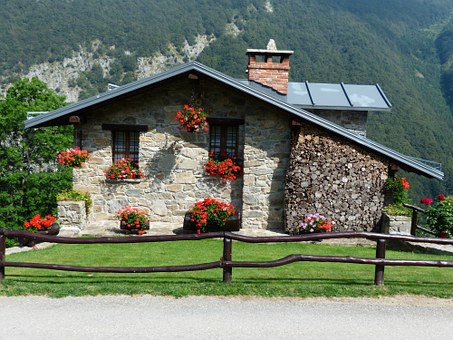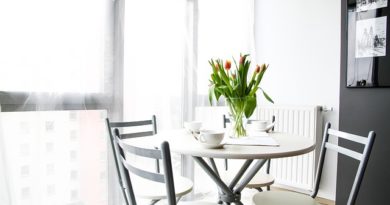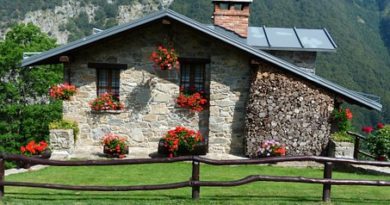Top Things to Look for When Buying a Vacation House
This guest post from FindMyWorkspace.com takes a look at the different things you should keep in mind if you’re in the market for a vacation home.
You simply adored your last holiday. The resort was perfect, the location amazing and the scenery breathtaking. Wouldn’t it be great if you had your own home in the area so that you could visit whenever you wanted? You wouldn’t have to go through the headache of booking rooms or planning your holiday months in advance.
Why not rent it out when you’re not using it? Sounds like a win-win situation, right? Well, not exactly because buying a second vacation home is a big decision which requires a good deal of planning, research and forethought.
Here are some important points to consider.
- Location
Before settling on a vacation home, you need to ask yourself if you really like the area. You and your family will be spending a lot of free time there so it’s important that the locality lives up to your expectations.
If you’re looking to get away from the hustle and bustle of the city, then you might prefer a vacation home in the mountains or maybe in the country.
Similarly, a beach front or lake front property provides a good change of scenery along with a plethora of activities for the entire family.
If you’re looking at multiple areas, it’s always a good idea to visit each locality several times. Even if you’ve decided on a location, try visiting it at different times of the year so that you get an idea of the weather and other conditions are during different seasons.
If you can, rent the property and live in it for a few weeks. This way you’ll get to know all the pros and cons associated with the house before buying it.
- Accessibility
How far is it from your primary home? How long does it take you to get there? Does it take a 2 or 3 hour drive or do you have to get on a plane?
Many vacation homes purchased are usually at a median distance of 200 miles from the primary residence (according to the National Association of Realtors) which can translate into some considerable travel time.
If it’s easy to get to, you’ll use it more often and it will be more attractive to potential renters as well.
- Nearby Facilities
Initially a remote cabin in the woods might seem like a perfect vacation home. However, that vision will fade very quickly if it takes you a couple of hours every week to get to the nearest town for basic supplies.
That’s why, just like your first home, your second home also needs to be close to grocery stores, pharmacies, hospitals, schools, restaurants, gas stations and various other everyday amenities.
Check if the area has good utility providers along with stable phone and internet connections (a must-have even if you’re on holiday).
Are there some good tourist attractions or recreational spots nearby? How about dining options? All important considerations since you’ll want to go out with friends and family every now and again.
- Costs
Vacation homes can be expensive because they come with some overhead costs. For example, in addition to the usual utility bills, you will probably need to hire someone to look after the property when you’re not there.
Similarly, you’ll also have to pay someone for minor repairs and maintenance since it’s not always possible to get to the property to do them yourself.
Before purchasing, you also need to look into the tax, mortgage and insurance considerations for a second home. Did you know you could get a higher tax bill because rates are usually higher in vacation hot spots.
An experienced estate agent working in the location you’re interested in can guide you in all these matters.
- Emergency and Safety Measures
If you plan to use the house infrequently, then you need to set up some emergency and safety measures.
Install a security system, hire a property manager and make sure that someone visits the house regularly. Yes, this will add to the monthly costs but a break in might end up costing you more.
Likewise, ensure that your property manager will look over the house and arrange for necessary repairs in case of damage caused by snow storms, flooding and other natural phenomenon.
- Main Reason for Buying
Lastly, take some time and think about why you’re purchasing a vacation home in the first place. Is it an investment? Do you want it to generate rent or do you only want it for yourself and your family?
If you want to rent it out and generate income then you’ll have to set up a rental business plan. You’ll need to advertise the property, have a way to collect the rent and a reliable cleaning and repair service.
Tenants expect a rented holiday home to be perfect and fully furnished from top to bottom. This means a hefty investment in setting the house up. Is this something you can afford along with all other expenses?
Also bear in mind that you won’t be able to use the house whenever you feel like it especially during peak holiday seasons.
When buying a vacation home (or any other property for that matter), don’t rush into it. Work out the numbers, do your research, get expert advice from local real estate professionals and also talk to people already living in the area before you move forward with the purchase.
Author Bio:
Photo: https://drive.google.com/open?id=0Bw_szxThtlrzTkRfZG1rRHNEMk0
Gemma Reeves is a seasoned writer who enjoys creating helpful articles and interesting stories. She has worked with several clients across different industries such as advertising, online marketing, technology, healthcare, family matters, and more. She is also an aspiring entrepreneur who is engaged in assisting other aspiring entrepreneurs in finding the best office space for their business.
Check out her company here: FindMyWorkspace




